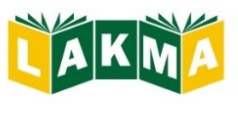Chris Hall is Reader in Applied Linguistics and teaches on the MA Applied Linguistics TESOL programme at York St John University in the UK. He taught EFL and applied linguistics at the University of the Americas in Puebla, Mexico, between 1990 and 2007, chairing the Department of Languages there from 1997-2001. He is the author or co-author of several books, including An Introduction to Language and Linguistics: Breaking the Language Spell (2005), Mapping Applied Linguistics (2011), and Introducing Language in Use (2nd edn, in press). His British Council-sponsored free online resource Changing Englishes: An Interactive Course for Teachers was launched earlier this year.
PLENARY TALK
Changing Englishes for Intercultural Communication
Monolingual native speakers are a minority among users of English, and their own uses of the language are extremely diverse and idiosyncratic. World-wide, the forms and cultural uses of English are even more variable, characterized by local hybridity and global negotiability. Yet in English Language Teaching, the principal objective is still seen as facilitating the attainment of ‘native-like’ competence in a ‘standard’ variety of the language. I argue in this presentation that, given the changing Englishes around us, we must move towards changing the ways in which we conceptualize the language, and also therefore the ways in which it is taught and tested. In developing the argument, I draw on sociolinguistic research which suggests that conformity with native-speaker norms (‘accuracy’) is no guarantee of effective usage, and psycholinguistic research which demonstrates that competence in standard varieties of English is an unrealistic learning outcome in any case. Ultimately, for intercultural communication in English to be effective, the monolithic belief that English constitutes a single correct set of forms must be given up. I advocate developing a ‘plurilithic’ approach to the language instead.
WORKSHOP
Changing Englishes inside and outside the Classroom
In this workshop, I encourage participants to explore their own and each others’ conceptualizations of English and ELT in our globalizing world, and to reflect on the implications of these beliefs for their students’ learning, both inside and outside the classroom. Using extracts from the reflections of teachers around the world, and examples of authentic usage by non-native speakers, I show how teachers can develop a ‘plurilithic’ (as opposed to monolithic) approach to English, and thus better adapt their teaching to the changing realities of the language and the new needs of its learners.
